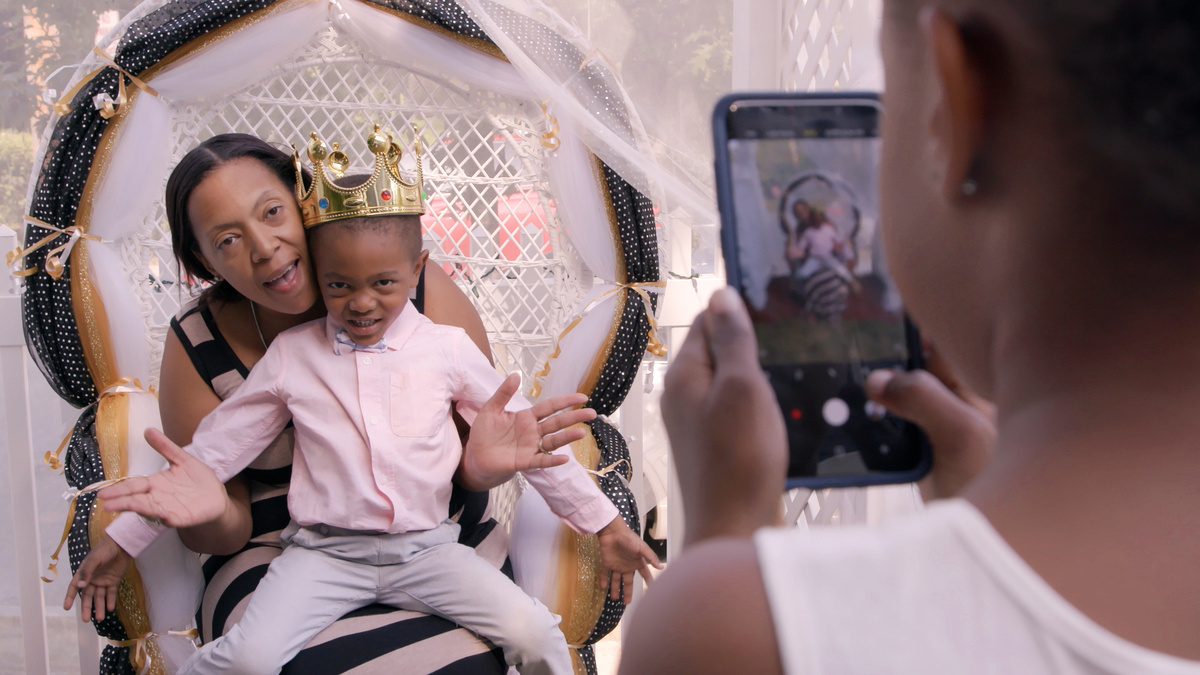
Essential Doc Reads is our curated selection of recent features and important news items about the documentary form and its processes, from around the internet, as well as from the Documentary magazine archive. We hope you enjoy!
Over at Immerse, Lauren Lee McCarthy, Tony Patrick, and Grace Lee talk about creating the 2021 Sundance New Frontier browser-based project Beyond the Breakdown—facilitated by a digital voice and on-screen text
As we all suddenly moved to remote life this past year, we quickly adopted available tools—Zoom, Google Docs, Slack, Clubhouse—with little questioning of the values embedded in them. But no tool is neutral, each has its own set of beliefs and biases encoded within its features and functionality. These protocols shape the way we interact with the platform, and by extension, interact with each other. Beyond the Breakdown was an effort to start from the building blocks, intentionally determining a set of aspirational values we wanted to build in.
Justine Smith, of Point of View Magazine, writes on three Portuguese documentaries that engage with “the nation’s obsessions with time, memory and paradox.”
In a nation with relatively few production means, this practice [hybridity of art] is born partially out of need: aesthetic choices that embrace narration, artifice and documentary are considerations born out of scarcity. However, more integrally, they also reflect a national identity marked by the melancholy of unfulfilled destiny.
Loira Limbal, the director of Through the Night, pens a defense of radical tenderness in documentaries, in a letter for Chicken & Egg Pictures.
To mother when you are Black, poor, queer, trans, immigrant, Indigenous, or undocumented is to insist on the value of our lives in a society that tells us we are worthless. Mothering — in our communities — is radical and visionary. It extends far beyond the biological. In Through the Night, we see Nunu care for the children but we also see her mother the mothers. It is a practice of care that has kept us alive in the face of unspeakable violence.
Aaron Hunt of Filmmaker Magazine interviews Shantrelle P. Lewis, director of the documentary In Our Mothers’ Gardens, where she speaks of treating the film like an exhibition she curated.
I come from the school of thought that art and aesthetics have function and meaning outside of art for art's sake. My worldview as a curator and filmmaker is that of an African-centric storyteller, where the mask functions in a ceremony of thoughts. Every visual aspect of the film functions to bring people home, make people feel comfortable, and to then leave the theater, their computer, their television in their living room, and call their mother, or journal, or reflect.
For MUBI Notebook, Ela Bittencourt interviews Jessica Beshir, director of Faya Dayi, a film Beshir made over ten years.
Another reason why it took so long was because understanding the land and khat is one thing, but then understanding the fabric of a society and its spiritual connections is another. I don’t think I could have made this film in 2011.. It had to marinate, not just thematically but also in terms of form. In this sense, I was very lucky. Since I had to finance the film myself, I had complete freedom to do exactly as I needed to. I could stay true to my vision.
Hyperallergic’s Hrag Vartanian uncovers a new wave of documentarians who are offering reportage of the 2020 Nagorno-Karabakh war, away from the gaze of biased media houses.
Hanrahan, a British reporter, was unique in that he not only covered the war for a long stretch of time, but also decided to create a documentary about it, titled Ghosts of Karabakh. The 36-minute film is a clear look at the frontlines in Artsakh itself. (Hanrahan was never granted permission by the Azerbaijani government to report there.) The style is stark, in many ways is what Vice News video reports pretend to be — a DIY effort bringing viewers as close to the raw truth as possible (it’s worth mentioning that Hanrahan has created reports for Vice as well).
From the Archive, August 2006 Issue: “Between Iraq and a Hard Place: Three Docs Debunk Our Mainstream Media's Propaganda”
Because there's no war at home, Americans are able to hide and deny what their soldiers do. "We wave them goodbye," Foulkrod continues. "Then we see shots of them coming home, and we don't show anything in between." The Ground Truth, which opens this fall through Focus Features, details the shattered lives and illnesses, such as depression and post-traumatic stress disorder (PTSD), that today's soldiers face upon their return from both Iraq and Afghanistan.
In the News
Richard Ray Perez is IDA’s New Executive Director
Dear Future Children Wins Big at Hot Docs
Hot Docs Independent Cinema Fund Raises $72,900 CDN
Light of the Setting Sun, Mother Vera, Fire of Love Bag $110K CDN First Look Pitch Prizes at Hot Docs
Responding to HFPA Controversy, NBC Refuses to Air Golden Globes 2022
A Four-Part Muhammad Ali Documentary Is in the Making
Oprah Winfrey and Prince Harry’s The Me You Can’t See Premieres on May 21
Strand Releasing Acquires I Was a Simple Man
Pray Away Lands on Netflix, Ahead of Tribeca Run
Mandy Chang Joins Fremantle as Global Head of Factual